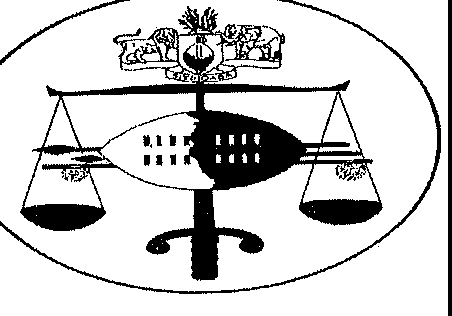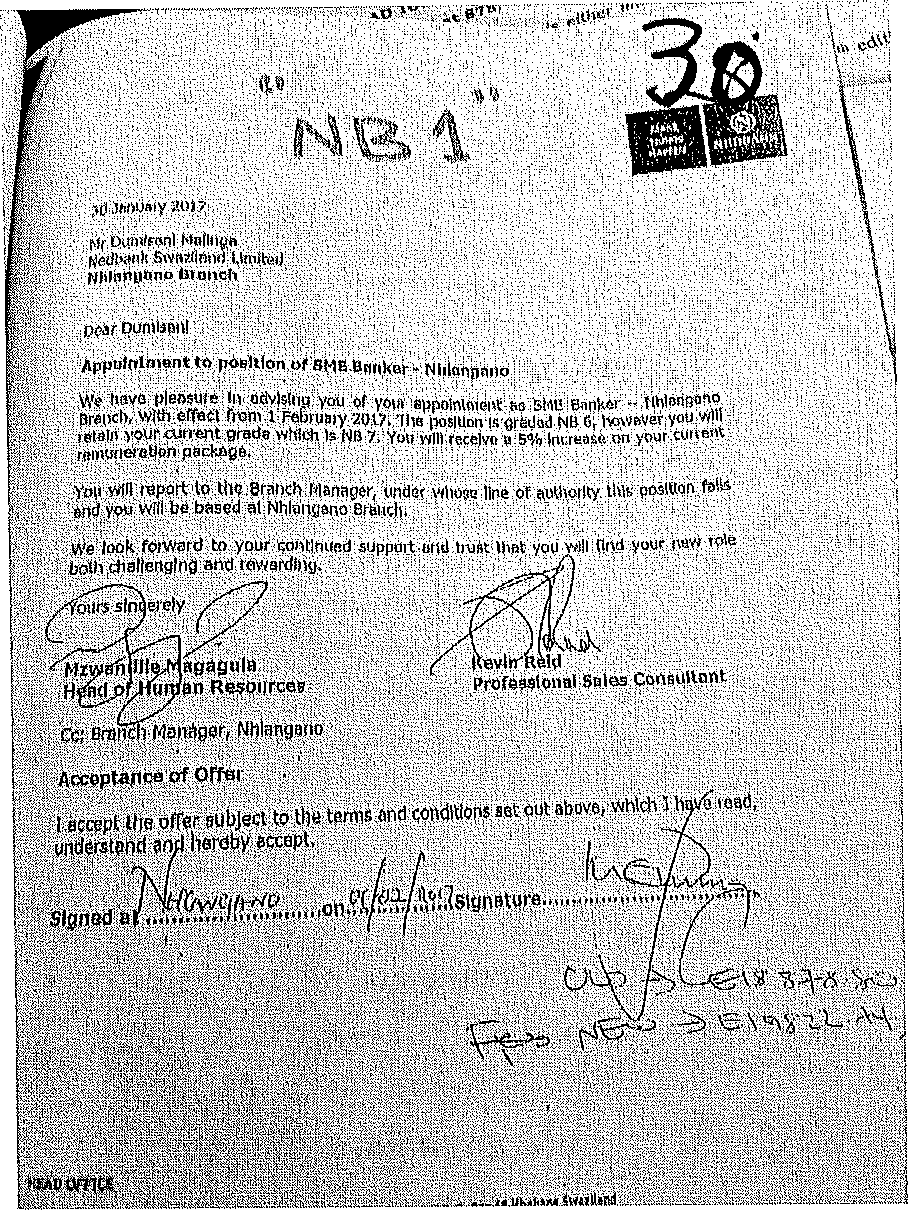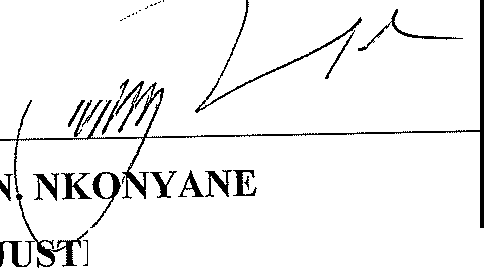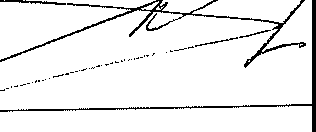- Case summary
- Appeal - jurisdiction of Industrial Court of Appeal - expressly restricted to questions of law by section 19(1) of the Industrial Relations Act, 2000 - exposition in Trevor Shongwe v Machawe Sitlwle and Another [2021] (08/2020) SZICA 1 (10 August 2021) restated Appeal - procedure - point of law raised for first time on appeal - Industrial Court of Appeal may consider or may "mero motu raise such point of law provided that (a) the point is covered by the pleadings in action proceedings, or by the papers filed of record in application proceedings; and (b) its consideration on appeal involves no unfairness to the other parties. General - procedure - a party is entitled to make any legal contention open to it on the facts as they appear on the affidavits and a Court may decide an application on a point of law that arises out of the alleged facts, even if the party had not relied on it in its papers, provided that the Court is satisfied that such procedure will not result in prejudice or urifairness to the other side

 IN THE INDUSTRIAL COURT OF APPEAL OF ESWATINI
IN THE INDUSTRIAL COURT OF APPEAL OF ESWATINI
Case No. 11/2020
In the matter between:
DUMSANI MALINGA Appellant and
NEDBANK SWAZILAND LIMITED Respondent
NEUTRAL CITATION: Dumsani Malinga v Nedbank Swaziland Limited and Another {2021] (11/2020) SZlCA 2 (10 August 2021)
CORAM: VANDER WALT,NKONYANEAND MAZIBUKOJJA HEARD 10 May 2021
DELIVERED: 10 August 2021
1
2
Summary

Appeal - jurisdiction of Industrial Court of Appeal - expressly restricted to questions of law by section 19(1) of the Industrial Relations Act, 2000 - exposition in Trevor Shongwe v Machawe Sitlwle and Another [2021] (08/2020) SZICA 1 (10 August 2021) restated
Appeal - procedure - point of law raised for first time on appeal - Industrial Court of Appeal may consider or may "mero motu raise such point of law provided that (a) the point is covered by the pleadings in action proceedings, or by the papers filed of record in application proceedings; and (b) its consideration on appeal involves no unfairness to the other parties.
General - procedure - a party is entitled to make any legal contention open to it on the facts as they appear on the affidavits and a Court may decide an application on a point of law that arises out of the alleged facts, even if the party had not relied on it in its papers, provided that the Court is satisfied that such procedure will not result in prejudice or urifairness to the other side

3

JUDGEMENT

VAN DER WALT,JA
BRIEF BACKGROUND
The Appellant (the "Employee") was employed by the Respondent (the "Employer") as a "Team Leader Sales" at the level of Grade "NB 7." Pursuant to a salary review exercise the Employee was appointed as a "SME banker," a position graded "NB 6."
A dispute as to which remuneration the Employee was entitled to as a result, culminated in the Employee approaching the Court a quo for an Order in the following terms:
"1. Declaring the reduction and or retention of Applicants sala,y at salary grade NB7 by Respondent unfair, unlawful and unjust forthwith.
Directing Respondent to pay the Applicant the underpayments to date in the sum of El 73 485.91 forthwith as of the date of the order.
Directing the Respondent to adjust or reinstate the salary of Applicant back to salary scale NBS to be in line with the underpayment duly conceded to by the back pays. [sic]"
\ '
4
THEISSUES
B.1 FACTS THAT ARE COMMON CAUSE
By the end of the hearing a quo, the following were common cause:
As at the 1'1 February 2017, the Employee's appointment as SME banker was goveined by a Letter of Appointment dated the 30th January 2017 to which the E1nployee, on the 1st February 2017, appended his signature. The material terms of the Letter of Appointment [reproduced in full hereunder] included that that, despite the fact that the SME Manager position is graded "NB 6." i.e. graded lower than the Team Leader position, the Employee would retain his "NB 7'' remuneration plus an additional 5% increase thereon i.e. financially the Employee would be better off.
. . '
5

On the 10th February 2017 the Employer addressed a further letter to the Employee setting out back pay for underpayment, reading that same was in respect of Grade "NB 8" backdated to June 2015, in the sum of E 88 567.00.
6
On the 9th May 2017 there was yet a further letter from the Employer, advising the Employee that there had been a computation error and that the amount due to the Employee is E 112 308.87 representing a shortfall for the period April 2016 to April 2017.
Following disagreement as to what remuneration the Employee was entitled to, the Employee reported a dispute to CMAC on the 20th September 2018.
In the Repmt of Dispute the Employee described himself as "SME Manager" and the "Nature of the Dispute" as "Underpayment of salary." In his summary of the "The Particulars Of All The Facts Giving Rise To This Dispute As Precisely As Possible" the Employee stated that:
"There was job evaluation and salary review exercise in 2016. The outcome of the exercise warranted that I be back paid E88, 507.00, this was communicated to me on 10/02/17. There was a follow through letter in which further Respondent conceded to about an error in computation of the back pay, it rectified same and I was paid El 12, 308.87. The back pay to me meant that NEDBANK was conceding that I was being underpaid. To this date there has been no adjustment ofmy salary so that it tallies with the concession made through the back pay for the underpayments."
The Certificate of Unresolved Dispute dated the 17th October 2019
contains the following precis:
"3.1. The Applicant claims that the Respondent unlawfully varied his sala,y scalefi'om a higher grade to a lower grade and this constitutes an unfair labor practice.
·I "
7
The Respondent denies any unfair labor practice against the Applicant and further argues that it has a counter claim against the Applicant for an overpayment made in 2017.
Both parties maintained their positions and the dispute was unresolved after conciliation. "
B.2 ISSUES IN DISPUTE
In order to view the relevant bones of contention in proper context, it needs to be highlighted that the Employee, in neither his CMAC documentation nor in his founding affidavit, made any mention of the Letter of Appointment and first addressed and then challenged it in his replying affidavit, after the Employer had raised its existence. The tenor of the Employee's founding affidavit was that he had been demoted, which was not the case of a mere salary vaiiation presented by the Employee to CMAC, and also, the CMAC documentation was only filed by the Employee in reply, once the Employer had raised their absence in its answering affidavit.
The pivotal question is exactly what remuneration the Employee was entitled to and the main facts in dispute can be summarised as follows:
Whether as alleged in the Employee's founding affidavit, the Employee had been demoted with a consequent reduction in remuneration;
Whether, exfacie the Letter of Appointment, the Employee's signature constituted a consensual and binding acceptance of the tenns thereof
i,. \
8
or, as alleged by the Employee in his replying affidavit, whether the Employee:
" . . .was simply called upon and directed to sign the letter presented to me (NB]) in light of the restructuring exercise that was on-going and I was told by my supervisor that he has also been made to take a lower rank. I submit that the document is not a result of any discussion hence the reason why no minutes are attached to support this suggestion. In any event there can never be an agreement to an unlm1ful act of demotion or making my conditions worse off which can be
relied upon as defence is it is being proffered herein."
As alleged on behalf of the Employee during argument, whether the Letter of Appointment had been novated by the letter of the 10th February 2017, which refers to the grade "NB 8."
As alleged, apparently for the first time in the grounds of appeal, whether:
sections 26 and 27 of the Employment Act, 1980 (the "Employment Act") had enjoyed due consideration;
the agreement was void by virtue of the maxim ex turpi causa non oritur actio: 1 and
the rule caveat subscriptor2 had been applied too stringently.
1 Latin for: "from a dishonourable cause an action does not arise"
'i.e. that a person who signs a contract is taken to be bound by the ordinary meaning and effect of the words which appear over his signature
9
FINDINGS OF THE COURT A QUO
It is clear from the te11ns of the Letter of Appointment and it was common cause that there had been a demotion but that it was coupled with retention of current remuneration plus a 5% increase thereon. The Court a quo was aleti to this state of affairs and commented, amongst others, that the Employer had felt that the Employee " ... should not be made worse off by his demotion."
The core :finding of the Court a quo was that acceptance of the terms of the Letter of Appointment by the Employee constituted a consensual and binding contract. The ratio decidendi was expressed thus:
"[19]... (T)he totality of the evidence before this Court clearly indicates that when the offer of appointment to the position of SME Banker was made by the Respondent to him, he accepted it freely and voluntarily. This being the case, the duty of this Court is thel'efore to hold the contract of the parties sacred and not i11te1fere with their intentions."
As regards novation, the Couti a quo held that:
"[SJ The Applicant's Counsel seems to think that the second lette1· was substituting the first one, through 11ovation. But this is not what this second letter was communicating to him. It was simply communicating an error in the computation of his back pay and rectifying it, nothing more. Novation is the substitution of a new contract for an old one, with the new contact extinguishing the tights and obligations that were in effect under the old agreement. From the evidence, it is quite cleai· that this was not a case of 110vation, as there was 110 such express or
implied declaration by the Respondent in this case."
10
GROUNDS OF APPEAL
The salient portion of the Notice of Appeal reads as follows:
"The court a quo erred in law by upholding the unlawful agreement in the following respects.
The agreement and its contents contravened Section 26 and 27 of the Employment Act of 1980 (as amended) which protects employees jiwn unlawful changes of terms and conditions of employment. The agreement which the court a quo upheld varied the salary scale of Appellant from NBS (a high grade) to NB7 (a lower grade);
The agreement upheld by the court was an ex turpi cause non oritur action and it could not be proffered or upheld as a lawful defence when in reality it varied terms and condition of the Appellant to less favourable ones.
The court a quo erred in law by stringently invoking the caveat subscriptor rule as a hard and fast rule, yet the rule susceptible to certain exceptions, in particular where there was coercion and where the parties were not ad idem when the agreement was concluded, the court in such instances may depart fi·om the rule, herein the court did not invoke the applicable exceptions to the rule.
The court a quo erred in law by contravening the provisions of Section 7 of the Industrial Relations Act of2000 (as amended), in that, it simply upheld the unlawful agreement of varying the grade on the basis of signature yet there are applicable laws governing protection of wages or remuneration. "
APPLICABLE LEGAL PRINCIPLES
El APPEAL TO INDUSTRIAL COURT OF APPEAL: QUESTIONS OFLAW
This Court mero motu raised the question whether these Grounds of Appeal constituted points of law with reference to section 19(1) of the
11
Industrial Relations Act, 2000 which stipulates that: "There shall be a right of appeal against the decision of the Court on a question of law to the Industrial Court of Appeal," read with Rule 6(4) of the Rules of this Court which requires that: "The notice of appeal shall set forth concisely and under distinct consecutively numbered heads the grounds of appeal and the points of law upon which the Appellant relies." It was contended on behalf of the Employee that they do and on behalf of the Employer, that they do not, necessitating closer scrutiny of what a question of law entails.
The applicable principles have been expounded by this Court in the first appeal serving on the Roll of the current session being the matter of Trevor S/wngwe v Machawe Sitlwle and Another [2021] (08/2020) SZICA 1 (lfY" August 2021.) The essence of that exposition is that:
A question of law, shorn of all embellislunents and simply, for purposes of an appeal means an appeal in which the question for argument and determination is what the true 1ule oflaw is on a certain matter; the duty of the court is to asce1iain the rule of law and to decide in accordance with it i.e. a question of law entails a question which a comi is bound to answer in accordance with a rule of law. (Where the court had overlooked a principle of law, i.e. appropriate law was not applied because of the oversight, it would have failed in law and the question, therefore, would be ultimately one oflaw.)
12
A question of law has to be distinguished, unambiguously, from
questions of fact and questions of judicial discretion:
A question of fact manifests itself where a court is seeking to ascertain the truth of the matter by making a determination on the facts and its duty is to exercise its intellectual judgement on the evidence submitted to it in order to asce1iain the truth; and
A question of judicial discretion emerges where a comi seeks to discover what is right, just, equitable, or reasonable (except so far as determined by law) and its duty is to exercise its moral judgment in order to asce1iain the right and justice of the case.
Since an appeal to this Comi on a question of fact is precluded by the Act, the point of departure in determining a question of law, would be to deem the Comi a quo 's factual findings to be correct since same are not capable of being disturbed on appeal to this Court.
This Court is also entitled to have regard, in addition, to uncontested facts appearing from record of the proceedings a quo insofar as such facts are not inconsistent with those found by the Court a quo.
E.2 LEGAL CONTENTIONS ON THE FACTS AND POINTS OF LAW RAISED FOR THE FIRST TIME ON APPEAL
A paiiy in motion proceedings may advance legal argument in suppo1i of the relief or defence claimed by it even where such arguments are
13
not specifically mentioned in the papers, provided that they arise from the facts alleged and provided fmther that the Comt is satisfied that such procedure will not result in prejudice or unfairness to the other side. 3
A comt of appeal may consider a point of law that is raised for the first time on appeal, or mero motu raise such point, if:
13.l the point is covered by the pleadings in action proceedings, or by the papers filed of record in application proceedings (i.e. affidavits, annexures, notices and other pe1tinent documents); and
13.2 its consideration on appeal involves no unfairness to the other pa1ties.4
APPLICATION OF THE LAW TO THE GROUNDS ADVANCED AS GROUNDS OF APPEAL
The Employee spread his net wide, trimming his sails to whatever winds may prevail and the Employee in effect postulated six different scenarios being (1) variation of salary [CMAC]; and/or (2) demotion coupled with salaiy reduction [founding papers]; and/or (3) Letter of Appointment void for want of consensus [replying affidavit, after the
3 Swissborough Diamond Mines (Ptyl Ltd and Others v Government Of The Republic Of South Africa And Others 1999 (2) SA 279 (T) at 324-325; this case has been referred to with approval in e.g. The Prime Minister of Swaziland and Others v Christopher Vilakat/ /30/12) [2013} SZSC 34 /31 May 2013)
The Attorney General & Another v Masotsha Peter Dlamini 27/13) 2013 [SZSC] 44 (30 July
2013) at Paragraph [55]
14
Employer alerted the Comt to the Letter of Appointment]; and/or (4) Letter of Appointment novated [argument]; and/or [5) applicability of sections 26 and 27 ofthe Employment Act [on appeal) and/or [6] the agreement was tainted ex turpi causa [on appeal.]
[15) The ra1smg by the Employee of whatever scenario ingenuity may suggest, would appear to be going beyond the leeway afforded by the principle that a paity may rely on any legal contention arising from the alleged facts. For instance, an agreement cannot be both void and capable of novation and a demotion and reduction or variation of sala1y are not necessarily the same thing.
[16) Fu1ther, not all the issues raised on appeal had been covered by the papers filed a quo, which may preclude them from being raised for the first time on appeal.
[17] The Comt a quo, rightly or wrongly, on the facts held that the Letter of Appointment constituted a contract freely and voluntarily entered into by the pa1ties, that the second letter merely sought to remedy a computation e1Tor and nothing more and as such, that the Letter of Appointment, which leaves the Employee better off financially, carries the day. These integrated factual findings cannot be disturbed on an appeal to this Comt.
[18) Fmther for the purposes of an appeal, the appropriate law cannot be asce1tained in vacuo or on a hypothetical basis and the question of law
15
has to be determined with reference to the relevant finding/s of fact by the Court a quo.
Ground of Appeal No 1.1 is to the effect that the contents of the agreement constituted by the Letter of Appointment "contravened" [sic] sections 26 and 27 of the Employment Act, which protects employees from unlawful changes of terms and conditions of employment, in that same varied the salary scale of Appellant from a higher grade a lower grade.
This ground calls for a factual determination as to whether or not there had been a reduction in salary, which would constitute a question of fact and not oflaw. However, for the sake of completeness, this ground will briefly be addressed.
Section 26 provides a remedy in the f01m of a complaint to the Labour Commissioner (within fourteen days) where, in an employee's opinion, changes in his or her terms of employment notified to him by the employer would result in less favourable terms and conditions of employment than those previously enjoyed by him.
Section 27 stipulates that : "No contract of employment shall provide for any employee any less favourable condition than is required by any law. Any condition in a contract of employment which does not conform with this Act or any other law shall be null and void and the contract shall be interpreted as if for that condition there were substituted the appropriate condition required by law. "
' ,,
16
It is common cause that the Employee never invoked section 26, within fourteen days or at all.
The Employee's case in his founding affidavit did not even refer to the Letter of Appointment. Only once the Employer had brought it to the attention of the Court a quo, did the Employee challenge it, in his replying affidavit. The objection was not on the basis that it was a unilateral notification of less favourable terms or on the basis of non conformity with the above sections, but on the basis that there had not been true consensus.
This ground of appeal is not covered by the founding papers a quo, the Court a quo was not called to pronounce thereon and in the circumstances, consideration thereof for the first time on appeal, would be unfair to the other party, the Employer.
In view of all of the above, this ground of appeal has no merit.
Ground of Appeal No 1.2 is that said agreement was a case of ex turpi causa non oritur actio in that it had varied the terms and conditions of the Employee's employment to less favourable ones. This ground, raised for the first time on appeal, has to fall at the same hurdles as the first ground.
', ,,
17
Ground of Appeal No 2 is to the effect that the Court a quo had applied the caveat subscriptor rule too stringently and in so doing, did not heed possible exceptions to the rule.
It is trite that the essence of this time honoured 1ule entails that a person who claims not to have read or appreciated the terms to which he has bound himself cannot generally escape the consequences of not having read the document before signing it. In other words, he has assented to what appears in the document above his signature. Further, that such party is bound in absence of fraud or misrepresentation. 5
There has been no allegation of fraud or misrepresentation and this ground too must fail.
Ground of Appeal No 3 is to the effect that the Court a quo "contravened" (sic) section 7 of the Industrial Relations Act. This ground does not make sense in that said section deals with the Recruitment and Appointment of the Registrar. Even had the reference to this section been a typographic enor, the remainder of the complaint that the Court a quo: "... upheld the unlawful agreement of varying the grade on the basis of signature yet there are applicable laws governing protection of wages or remuneration" cannot be sustained in view of the (unassailable) factual inference-that there had been no detrimental variation.
5 George v Fairmead (Pty) Ltd 1957 (2) SA 392 (C), cited with approval in amongst others in Ensemble Plastic (Pty) Ltd v Nagra Motors (Pty) and 2 Others {1084/2016) [2020] SZHC 82 {8 th May, 2020)
18
CONCLUSION AND ORDER
For the aforegoing reasons, it is the considered view of this Court that none of the Grounds of Appeal hold merit.
Accordingly, the following order is made:
The appeal is dismissed, with no order as to costs.
J.M. WALT
JUSTICE OF APPEAL

 I agree
I agree

 /
/
I agree
D.MAZIBUKO JUSTICE OF APPEAL
19
For the Appellant: Mr. M. Ndlangamandla of MLK Ndlangamandla Attorneys
For the Respondent: Mr. B. Gamedze of Musa M Sibandze Attorneys